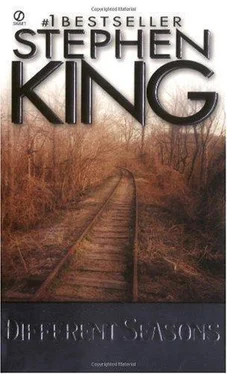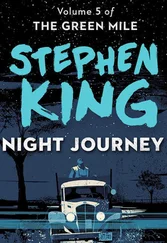After the preliminary exam - but before the results of the pregnancy test were in, my nurse, Ella Davidson, said: "That girl yesterday? Jane Smith? If that isn't an assumed name, I never heard one.'
I agreed. Still, I rather admired her. She had not engaged in the usual shilly-shallying, toe-scuffing, blushing, tearful behaviour. She had been straightforward and businesslike. Even her alias had seemed more a matter of business than of shame. There had been no attempt to provide verisimilitude by creating a 'Betty Rucklehouse' or whomping up a 'Ternina DeVille'. You require a name for your form, she seemed to be saying, because that is the law. So here is a name; but rather than trusting to the professional ethics of a man I don't know, I'll trust in myself. If you don't mind, Ella sniffed and passed a few remarks - 'modern girls' and 'bold as brass' - but she was a good woman, and I don't think she said those things except for the sake of form. She knew as well as I did that, whatever my new patient might be, she was no little trollop with hard eyes and round heels. No; 'Jane Smith' was merely an extremely serious, extremely determined young woman - if either of those things can be described by such a milquetoast adverb as 'merely'. It was an unpleasant situation (it used to be called 'getting in a scrape', as you gentlemen may remember; nowadays it seems that many young women use a scrape to get out of the scrape), and she meant to go through it with whatever grace and dignity she could manage.
A week after her initial appointment, she came in again. That was a peach of a day - one of the first real days of spring. The air was mild, the sky a soft, milky shade of blue, and there was a smell on the breeze - a warm, indefinable smell that seems to be nature's signal that she is entering her own birth cycle again. The sort of day when you wish you were miles from any responsibility, sitting opposite a lovely woman of your own - at Coney Island, maybe, or on the Palisades across the Hudson with a picnic hamper on a checkered cloth and the lady in question wearing a great white cartwheel hat and a sleeveless gown as pretty as the day.
'Jane Smith's' dress had sleeves, but it was still almost as pretty as the day; a smart white linen with brown edging. She wore brown pumps, white gloves, and a cloche hat that was slightly out of fashion - it was the first sign I saw that she was a far from rich woman.
'You're pregnant,' I said. 'I don't believe you doubted it much, did you?'
If there are to be tears, I thought, they will come now.
'No,' she said with perfect composure. There was no more a sign of tears in her eyes than there were rainclouds on the horizon that day. 'I'm very regular as a rule.'
There was a pause between us.
'When may I expect to deliver?' she asked then, with an almost soundless sigh. It was the sound a man or woman might make before bending over to pick up a heavy load.
'It will be a Christmas baby,' I said. '10 December is the date I’ll give you, but it could be two weeks on either side of that'
'All right.' She hesitated briefly, and then plunged ahead. 'Will you attend me? Even though I'm not married?'
'Yes,' I said. 'On one condition.'
She frowned, and in that moment her face was more like the face of Harriet White, my father's first wife, than ever. One would not think that the frown of a woman perhaps only twenty-three could be particularly formidable, but this one was. She was ready to leave, and the fact that she would have to go through this entire embarrassing process again with another doctor was not going to deter her.
'And what might that be?' she asked with perfect, colourless courtesy.
Now it was I who felt an urge to drop my eyes from her steady hazel ones, but I held her gaze. 'I insist upon knowing your real name. We can continue to do business on a cash basis if that is how you prefer it, and I can continue to have Mrs Davidson issue you receipts in the name of Jane Smith. But if we are going to travel through the next seven months or so together, I would like to be able to address you by the name to which you answer in all the rest of your life.'
I finished this absurdly stiff little speech and watched her think it through. I was somehow quite sure she was going to stand up, thank me for my time, and leave forever. I was going to feel disappointed if that happened. I liked her. Even more, I liked the straightforward way she was handling a problem which would have reduced ninety women out of a hundred to inept and undignified liars, terrified by the living clock within and so deeply ashamed of their situation that to make any reasonable plan for coping with it became impossible.
I suppose many young people today would find such a state of mind ludicrous, ugly, even hard to believe. People have become so eager to demonstrate their broad-mindedness that a pregnant woman who has no wedding ring is apt to be treated with twice the solicitude of one who does. You gentlemen will well remember when rectitude and hypocrisy were combined to make a situation that was viciously difficult for a woman who had gotten herself 'in a scrape'. In those days, a married pregnant woman was a radiant woman, sure of her position and proud of fulfilling what she considered to be the function God put her on earth for. An unmarried pregnant woman was a trollop in the eyes of the world and apt to be a trollop in her own eyes as well. They were, to use Ella Davidson's word, 'easy', and in that world and that time, easiness was not quickly forgiven. Such women crept away to have their babies in other towns or cities. Some took pills or jumped from buildings. Others went to butcher abortionists with dirty hands or tried to do the job themselves; in my time as a physician I have seen four women die of blood-loss before my eyes as the result of punctured wombs - in one case the puncturing was done by the jagged neck of a Dr Pepper bottle that had been tied to the handle of a whisk-broom. It is hard to believe now that such things happened, but they did, gentlemen. They did. It was, quite simply, the worst situation a healthy young woman could find herself in.
'All right' she said at last. 'That's fair enough. My name is Sandra Stansfield.' And she held her hand out. Rather amazed, I took it and shook it. I'm rather glad Ella Davidson didn't see me do that. She would have made no comment, but the coffee would have been bitter for the next week.
She smiled - at my own expression of bemusement, I imagine - and looked at me frankly. 'I hope we can be friends, Dr McCarron. I need a friend just now. I'm quite frightened.'
'I can understand that, and I'll try to be your friend if I can, Miss Stansfield. Is there anything I can do for you now?'
She opened her handbag and took out a dime-store pad and a pen. She opened the pad, poised the pen, and looked up at me. For one horrified instant I believed she was going to ask me for the name and address of an abortionist Then she said: 'I'd like to know the best things to eat. For the baby, I mean.'
I laughed out loud. She looked at me with some amazement.
'Forgive me - it's just that you seem so businesslike.'
'I suppose,' she said. 'This baby is part of my business now, isn't it, Dr McCarron?'
'Yes. Of course it is. And I have a folder which I give to all my pregnant patients. It deals with diet and weight and drinking and smoking and lots of other things. Please don't laugh when you look at it You'll hurt my feelings if you do, because I wrote it myself.'
And so I had - although it was really more of a pamphlet than a folder, and in time became my book, A Practical Guide to Pregnancy and Delivery. I was quite interested in obstetrics and gynaecology in those days - still am -although it was not a thing to specialize in back then unless you had plenty of uptown connections. Even if you did, it might take ten or fifteen years to establish a strong practice. Having hung out my shingle at a rather too-ripe age as a result of the war, I didn't feel I had the time to spare. I contented myself with the knowledge that I would see a great many happy expectant mothers and deliver a great many babies in the course of my general practice. And so I did; at last count I had delivered well over two thousand babies -enough to fill two hundred classrooms.
Читать дальше











